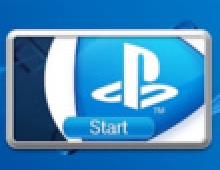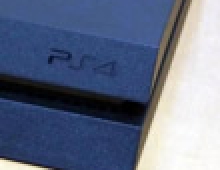
No Region Code For PS3 Games
Sony Computer Entertainment is likely to abandon its practice of region coding games for its PlayStation 3 console, the head of its South Pacific operation said.
Sony's current crop of PlayStation and PlayStation 2 consoles contains technology that blocks the use of illegal copied games. It also prevents the use of game and DVD discs that have been region coded for other markets.
However, Sony Computer Entertainment Australia managing director, Michael Ephraim, said the company was unlikely to continue the policy as international television standards emerge.
"If you look at the fact that it will support high-definition TV, which will be a global standard, there's a good likelihood that it will be global region, as for example we've done with the PSP (PlayStation Portable)," Mr Ephraim said.
The region-free PS3 games have been also confirmed by Ken Kutaragi, Sony's game division head, in an interview last July.
SCE Australia recent lost a lengthy legal battle which reached the High Court and brought its policy of coding discs specifically for market regions under scrutiny from the Australian Competition and Consumer Commission (ACCC).
In 2001 SCEA filed a law suit against Eddy Stevens who supplied "mod chips" that circumvent the console's protection measures and allowing the consoles to play discs for other market regions and pirated game discs.
Sony argued that the chips were primarily to support piracy and asked the court to declare them illegal.
However, the ACCC intervened in the case arguing that region coding system was an artificial trade barrier that unfairly blocked consumers' access to games from other markets which are often cheaper.
The High Court ruled that while pirating discs was illegal the mod chips did not infringe Australia's copyright laws.
Making his first comments on the case since the High Court announced its decision Mr Ephraim said that ruling was "redundant".
The company's legal representatives have advised the company that the results of the trial only apply to the PlayStation 1 which was at the heart of the case, he said.
Mr Ephraim said that the company would reserve the option to start a new case based on the PlayStation 2, but said that, for now, the company would focus on lobbying federal Government to have the mod chips outlawed.
Under the terms of Australia's FTA with the US, the federal Government has until January 2007 to amend the Copyright Act to give copyright owners stronger mechanisms to take action against individuals who circumvent "technological prevention measures."
However, Sony Computer Entertainment Australia managing director, Michael Ephraim, said the company was unlikely to continue the policy as international television standards emerge.
"If you look at the fact that it will support high-definition TV, which will be a global standard, there's a good likelihood that it will be global region, as for example we've done with the PSP (PlayStation Portable)," Mr Ephraim said.
The region-free PS3 games have been also confirmed by Ken Kutaragi, Sony's game division head, in an interview last July.
SCE Australia recent lost a lengthy legal battle which reached the High Court and brought its policy of coding discs specifically for market regions under scrutiny from the Australian Competition and Consumer Commission (ACCC).
In 2001 SCEA filed a law suit against Eddy Stevens who supplied "mod chips" that circumvent the console's protection measures and allowing the consoles to play discs for other market regions and pirated game discs.
Sony argued that the chips were primarily to support piracy and asked the court to declare them illegal.
However, the ACCC intervened in the case arguing that region coding system was an artificial trade barrier that unfairly blocked consumers' access to games from other markets which are often cheaper.
The High Court ruled that while pirating discs was illegal the mod chips did not infringe Australia's copyright laws.
Making his first comments on the case since the High Court announced its decision Mr Ephraim said that ruling was "redundant".
The company's legal representatives have advised the company that the results of the trial only apply to the PlayStation 1 which was at the heart of the case, he said.
Mr Ephraim said that the company would reserve the option to start a new case based on the PlayStation 2, but said that, for now, the company would focus on lobbying federal Government to have the mod chips outlawed.
Under the terms of Australia's FTA with the US, the federal Government has until January 2007 to amend the Copyright Act to give copyright owners stronger mechanisms to take action against individuals who circumvent "technological prevention measures."


















